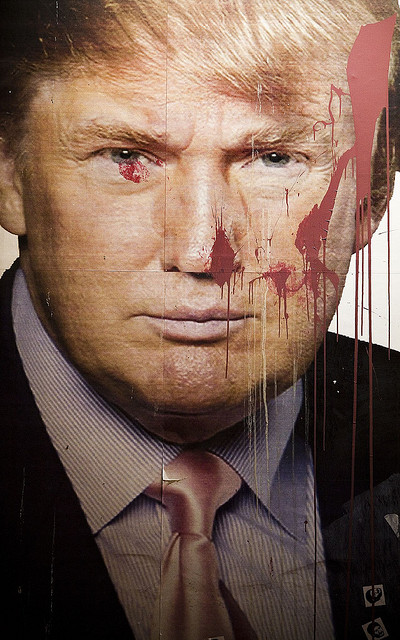 Back in January of last year, Republican New Jersey Governor Chris Christie stripped Atlantic City residents of their democracy and took over control of the city with an Emergency Manager. The move came after the implosion of the casino industry plunged the city into insolvency.
Back in January of last year, Republican New Jersey Governor Chris Christie stripped Atlantic City residents of their democracy and took over control of the city with an Emergency Manager. The move came after the implosion of the casino industry plunged the city into insolvency.
The road to the loss of democracy in Atlantic City began, in part, when Donald Trump, exhibiting his most trumpish self, created what Steven P. Perskie, the former chairman of the Casino Control Commission and a former state Democratic legislator, called a “Potemkin village”, a huge boondoggle that sucked large numbers of individuals and businesses into the vortex behind its false façade and then, when it collapsed in narcissistic egotistical ruin, spit them out.
While Atlantic City went broke, Trump walked away all that much richer:
Republicans are panicky, for good reason. We have seen this movie before. It’s called the Trump Taj Mahal Atlantic City.
In that, the first of his enterprises’ four bankruptcies, he convinced regulators he could raise plenty of money to complete the $1 billion project, claiming his golden name meant he wouldn’t have to rely on high-interest junk bonds, as other developers did. But then he issued junk bonds. Gamblers didn’t show up and spend the money he needed. Costs got out of control. Six months after the Taj opened in April 1990, it was in default, and nine months after that it went bankrupt, followed by two other Trump casinos.
The former head of the casino regulatory authority told The Post’s Robert O’Harrow Jr. that Trump had built a “Potemkin village.” Atlantic City never quite recovered, but Trump came out fine. He told O’Harrow: “I got out great.”
When the Taj went down in flames, the ripple effect was devastating. It took down investors, suppliers, and anyone who had the misfortune to be touched by Trump’s anti-Midas Touch:
On July 16, 1991, Trump Taj Mahal filed a petition in the U.S. Bankruptcy Court in New Jersey for protection under Chapter 11 of the U.S. bankruptcy code. Trump described himself in documents as the “sole Shareholder of Trump Taj Mahal, Inc.”
The consequences of the Taj bankruptcy rippled through Atlantic City and Donald Trump’s empire. […]
Large institutions took the brunt of the losses. But many small-time investors who had bought the bonds, directly or through retirement funds, also suffered losses, according to Bryant Simon, a professor at Temple University and author of “Boardwalk of Dreams: Atlantic City and the Fate of Urban America.” So did the small-business owners who sold Trump paint, equipment, food, limousine services and much more. Many were eventually paid only a fraction of what they were due.
“He was a brutal and ruthless negotiator,” Simon told The Post. “People paid the price.”
What was not known at the time was that the ultimate price to be paid by people who were not Donald Trump, most of whom were not even remotely connected with the P.T. Barnum of our time, would be the loss of democracy at the local level through the imposition of emergency management. Trump walked away rich while Atlantic City ended up losing four of its twelve casinos including the Taj Mahal.
If he could do that for a single city, just imagine what he could do for America. It makes it all the more apparent that when Trump talks about making America great again, he’s talking about the late 19th Century when “avaricious rascals” like Andrew Carnegie, Jay Gould, J.P. Morgan, and John D. Rockefeller cheated and robbed investors and consumers, corrupted government, fought ruthlessly among themselves, and in general carried on predatory activities comparable to those of the robber barons of medieval Europe.”
[CC image credit: Thomas Hawk | Flickr]



